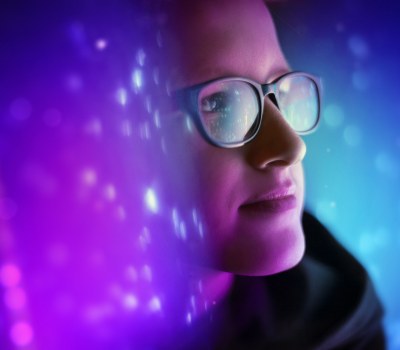Are Chatbots going to change the world?
Aside from researchers and academic labs, there has been growing interest in AI from companies looking for more sophisticated approaches to customer service. Over the last few weeks, the emergence of ChatGPT has once again put AI tools in the spotlight.
What is ChatGPT?
Released in November 2022 and created by US non-profit organisation OpenAI, chatbot ChatGPT is a tool which showcases the latest advances in language processing technology through its ability to produce human-like communication.
By prompting ChatGPT with text, the programme looks for regularities in the conversational data, predicting what words and phrases best fit together to form sentences. In this way, ChatGPT can mimic human behaviour, writing essays, poetry and jokes – even providing useful information and advice. It also brings you all of this information at a speed that a human could only dream of.
ChatGPT is particularly impressive as it appears to have overcome the limitations of computing – even the best language models to-date are literal in their understanding. By contrast, ChatGPT is more human in its interaction and feels more authentic through its apparent creativity.
What are Chatbots used for?
OpenAI’s mission is to develop a “safe and beneficial” artificial general intelligence system. Aside from AI researchers and academic labs there has been growing interest in this tool among companies looking for more effective ways to assist their customers. Over the last few weeks, talk of ChatGPT has dominated the internet, with many users testing how effective the programme is by asking it to write everything from emails to scripts. At present, using the tool is free.
So far, so sci-fi, but what does this mean for me?
In practical terms, its predicted that ChatGPT may one day replace search engines; however in theory it also has the potential to shake up the job market, replacing roles across various sectors ranging from insurance to media. But there’s no need to worry just yet – the system is far from perfect.
As plausible and as authoritative as its answers might be at first glance, in fact ChatGPT is able to falsify facts and demonstrate bias – just like a person.
Ethical intelligence
As creative as ChatGPT is, it is worth remembering that its programmed by humans, open to error and limited by the scope of what it has been ‘taught’. With this in mind, its developers have attempted to introduce some ethical parameters to the tool, with ChatGPT advising that any questions “that are discriminatory, offensive, or inappropriate […] racist, sexist, homophobic, transphobic, or otherwise discriminatory or hateful” are, like illegal activities, off-limits.
The creation of this tool is undoubtedly a remarkable achievement which, in the right context, has the qualities necessary to enhance quality of life; reassuringly, the limitations of the ChatGPT tool only help to reinforce the irreplaceable quality of human cognition and mental reflexivity.
Visit the website and test ChatGPT for yourself.
To find out how our team could help you, please visit our webpage or subscribe to our Tech+ newsletter.











